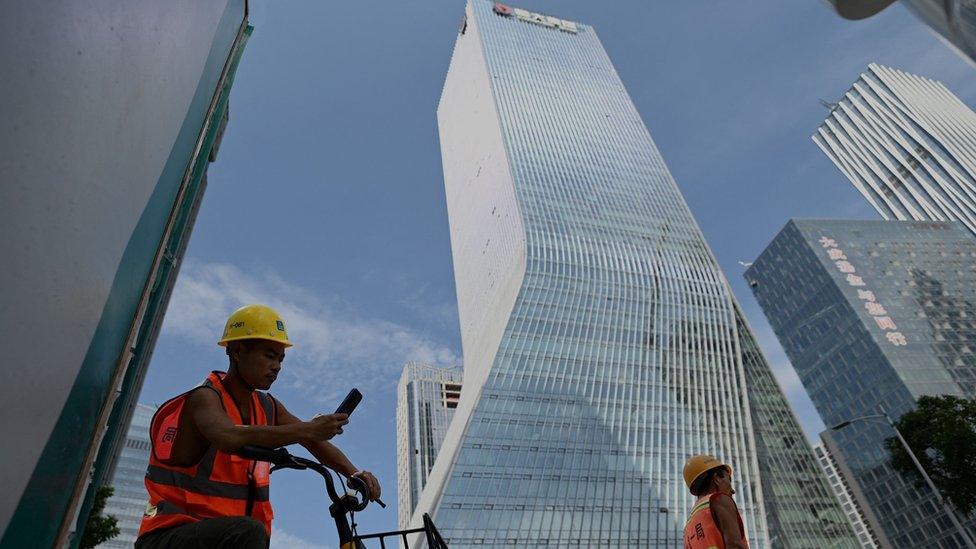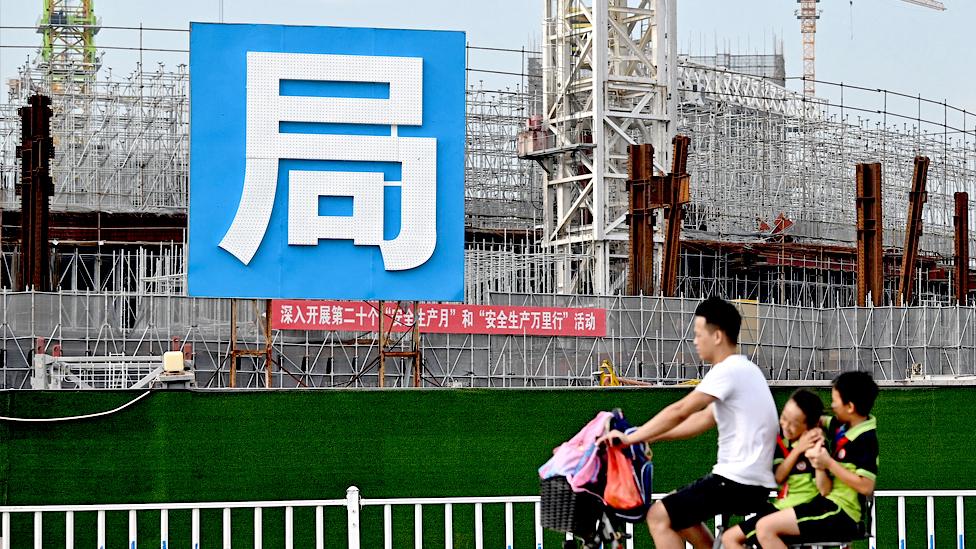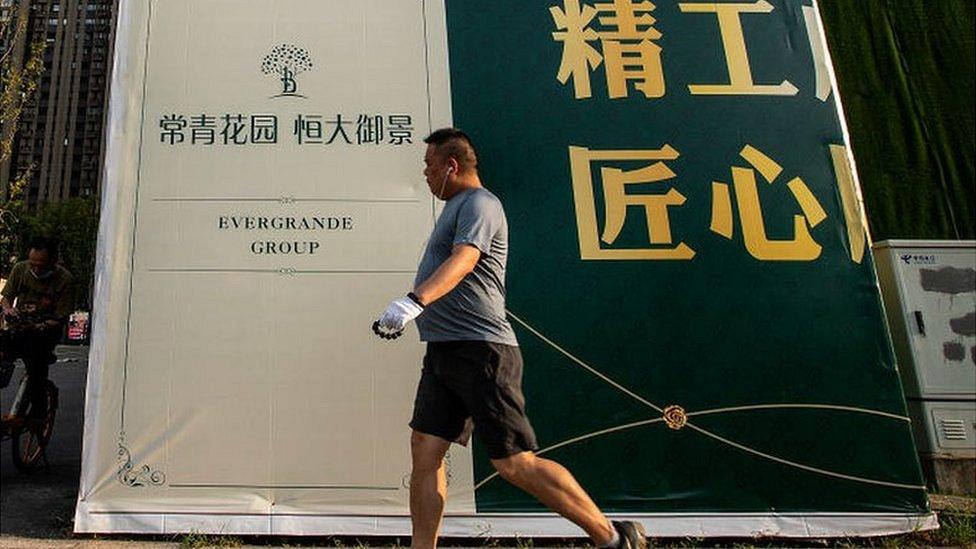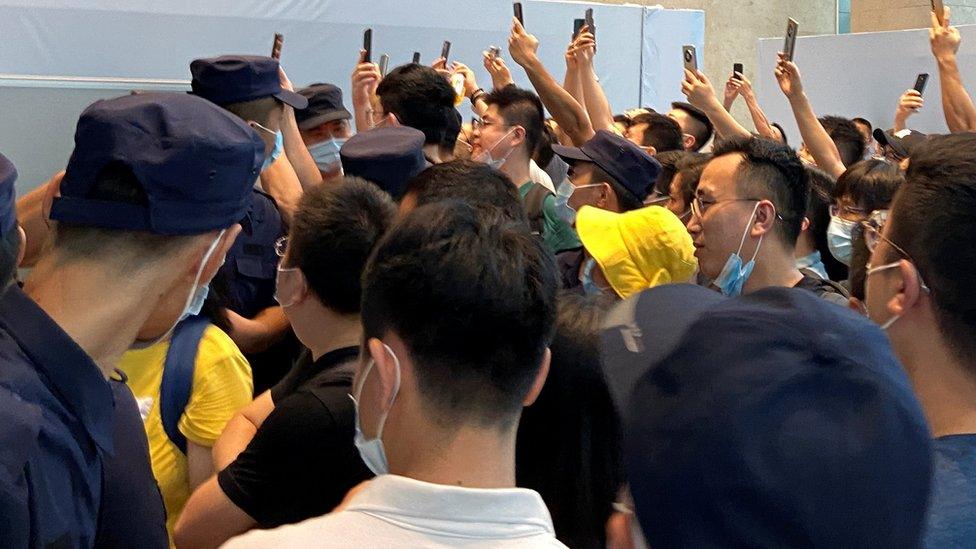Evergrande: Chinese property giant 'misses another payment deadline'
- Published

Evergrande has debts of more than $300bn
The hugely indebted Chinese property giant Evergrande has missed interest payments to overseas investors for the second time in a week, reports say.
Evergrande was due to pay foreign bond holders $47.5m (£35m) by Wednesday.
But bondholders told Reuters news agency and Bloomberg that they were yet to receive any payment.
Under agreements with investors, the company has a 30-day grace period before the missed payments officially become a default.
Evergrande has not commented publicly on the issue. Once China's top-selling developer, the company is now facing debts of more than $300bn.
It has been prioritising its liabilities within China, amid concerns of social unrest.
Last week, Evergrande missed an $83.5m interest payment on an overseas bond, but struck an agreement with domestic investors over a $35.9m payment which was also due.
As the deadline for a similar interest payment passed on Wednesday, sources told Reuters that some offshore Evergrande bondholders had not received any money or communication on the matter.
Two bondholders told Bloomberg they had not received payment as of Thursday morning.
Evergrande did, however, make a 10% repayment of wealth management products - largely owned by onshore retail investors - that was due by Thursday.
The crisis engulfing the world's most indebted property developer has transfixed global markets in recent weeks.
BACKGROUND: What is Evergrande and is it too big to fail?
Evergrande expanded aggressively to become one of China's biggest companies by borrowing more than $300bn.
But after Beijing brought in new rules to control the amount owed by big real estate developers, Evergrande started offering its properties at major discounts to ensure money was coming in to keep the business afloat. Now, it is struggling to meet the interest payments on its debts.
Evergrande announced this week that it is selling its $1.5bn stake in a commercial bank, as it scrambles to raise the money it owes.
Investors have been watching the crisis unfold as the firm teeters between a messy collapse with potentially far-reaching implications, a managed breakup or the less likely prospect of a bailout by the Chinese government.
What China's Evergrande crisis means for the world
Related topics
- Published29 January 2024

- Published29 September 2021

- Published14 September 2021
